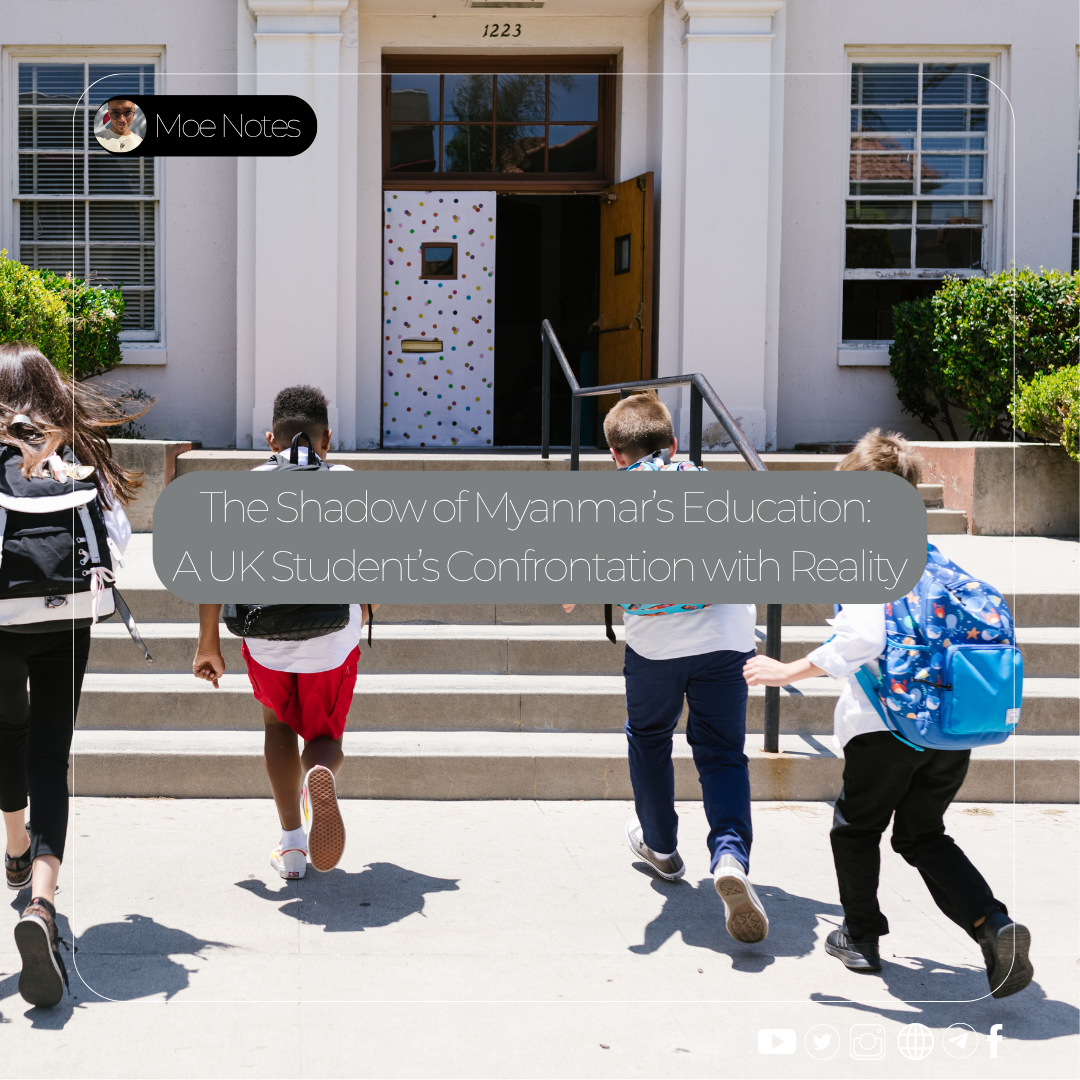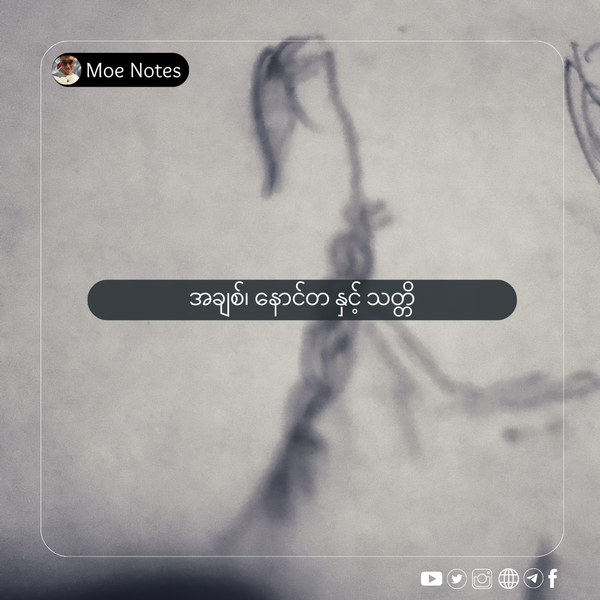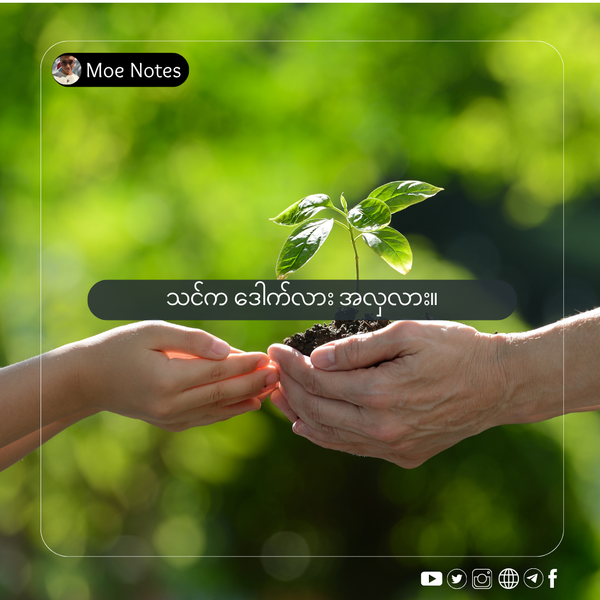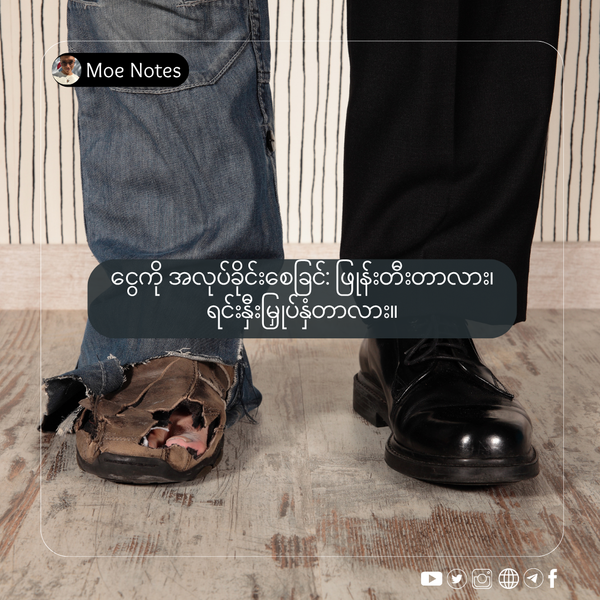The Shadow of Myanmar’s Education: A UK Student’s Confrontation with Reality

"A school is a place that teaches you how to face the real world. It's not just an arena for competing with books and pencils."
This article is also available in [Burmese]
Today, I want to open up about our education system. This isn’t about blaming a single school or a single teacher. It’s about the entire “system” that we all grew up in, the system that shaped our thinking, and the system that ultimately causes us immense trouble when we come face-to-face with an international education system.
You might ask, “Who are you to say all this?” I’ve attended both international curriculum schools and Burmese state schools. I have personally experienced the pros and cons of both systems, and now, in the UK, I am confronting a third. I’m writing this because I’ve realized that being content with being comfortable in one’s small corner is not enough.
Part 1: The Baggage We Carry
When we, as students from Myanmar, go abroad, we carry more than just clothes and books. We have an invisible piece of baggage that we aren’t even aware of: our “perspective on education.”
The Myth of the “Good Student”
In our country, “education” is often defined as “passing exams.” The better you are at memorizing the textbook, the higher your marks, and the more “educated” you are considered to be. We compete with one another, we strive to be Number 1, and we cheat on exams. These habits are ingrained in us from a young age. The student with the highest rank is the most prestigious; the student with the lowest rank is the least.
What did this system do to us? It created students who had no desire to learn, who only worked for the sake of grades. There are so many of us who failed under a system that told a fish it was “stupid” for not being able to climb a tree.
The Skill Sets We Never Learned
Here in the UK, any skill you excel at is considered necessary. If you’re good with the Google Suite, it makes collaboration easier. If you know how to edit videos, it’s an advantage in your projects. If you’ve used Canva to create logos, you’ll find it easier to understand Adobe InDesign for your portfolio.
But back home, these skills were never recognized under the banner of “education.”
Part 2: The Collision with Reality
When you arrive in the UK with this mindset, the first problems you face are numerous.
Language: The Struggle for Survival
You become fluent in a language the more you are exposed to it, the more you are forced to use it. Just using your phone or attending a language class is not enough. “Trying” to learn it by sacrificing sleep is also exhausting and ineffective.
Our education system taught English as a “subject,” not as a “language.” We memorized poems and grammar rules, but it never built the confidence or fluency needed to have an honest conversation with someone or to explain a complex idea.
The University Culture Shock
A university is a place that prepares you for the professional world. If your perspective on education is flawed at this stage, you are only harming yourself.
- From Competition to Collaboration: From a young age, we were taught to cram just before an exam, to aim for full marks, and to compete with one another. Here, it’s not like that. The “studio culture” teaches you that you get better results by critiquing each other’s ideas and working together.
- From Rote Learning to Critical Thinking: Here, the most intelligent person isn’t the one with the highest score. It’s the person who can ask the best questions and defend their perspective with solid evidence. No one will ever tell a fish it’s “stupid” for not being able to climb a tree.
- From Passing Exams to Building a Skill Set: Here, what you “can do” is more important than your exam score. Are you proficient with the Google Suite? Can you edit videos? Can you create designs with Canva? Our education system did not recognise these skills, but here, they are crucial assets that increase your value.
Part 3: The Practical Challenges of Daily Life
The Time Zone Gap: This is the biggest challenge when trying to stay in touch with family, friends, and partners back home. When you wake up at 9 AM, it’s already 3:30 PM in Myanmar. When you finish classes at 3 PM, it’s 9:30 PM there. Finding a convenient time to talk requires a great deal of understanding and effort from both sides.
Food and Cost of Living: I’m someone who appreciates good food. Here, cooking Burmese food is difficult due to the scarcity of ingredients, and it’s not worth it to cook for just one person. A single meal out costs at least £10, and it’s often not even filling. The option of just going to a tea shop when there’s no food at home, like in Yangon, doesn’t exist here.
Culture Difference: When you suddenly arrive in British culture from Southeast Asia, it can be very strange. The people here can seem cold, but in reality, that’s just their way of communicating. A greeting like, “You’ve gained weight,” which might be common in Yangon, could be considered a rude comment here.
Part 4: The Financial Battlefield
The Impact of Inflation: As the currency in Myanmar inflates, the value of the money you have decreases, even if the amount stays the same. What used to be 300,000 MMK for £100 is now only about £70. In this situation, almost every student without an independent income faces financial insufficiency.
What You Value vs. What You Pay For: If your priority is to study abroad, you will have to spend a certain amount of money. Education is not something you get just by trying; it’s not something you get just by working hard. At a university, not a high school, you have to spend money on things you might not want to (like transportation and food) to be able to do your work.
Financial Management: Most of us grew up with a “pocket money” system, so when we get here, we don’t know how to manage money. We spend too much on non-essentials and too little on essentials. We learn to budget through the painful experience of having no money left at the end of the month or having to attend classes on an empty stomach.
Part 5: The Difficulty of Connecting with Myanmar
- Financial Transfers: Most banks in Myanmar are not recognised internationally. You can’t use Apple Pay, and you can’t transfer money directly to a UK bank account. Without an agent, it’s impossible.
- Communication: The poor internet connection in Myanmar is something that almost never happens here.
- Opportunities: As a citizen of Myanmar, you don’t get any special privileges. Even for a visa-free country like Thailand, you can still face issues.
Conclusion: Unlearning and Rebuilding Your Education
When you look at all these challenges, you’ll see that our education system didn’t give us enough weapons for “survival.”
But this is not the end. It’s just the beginning. Coming to the UK is not just about learning a new education system; it’s about “unlearning” the flawed habits you learned in the past and “relearning” new ways of thinking.
This journey is not easy. But you are not alone. We are all on this path together.



